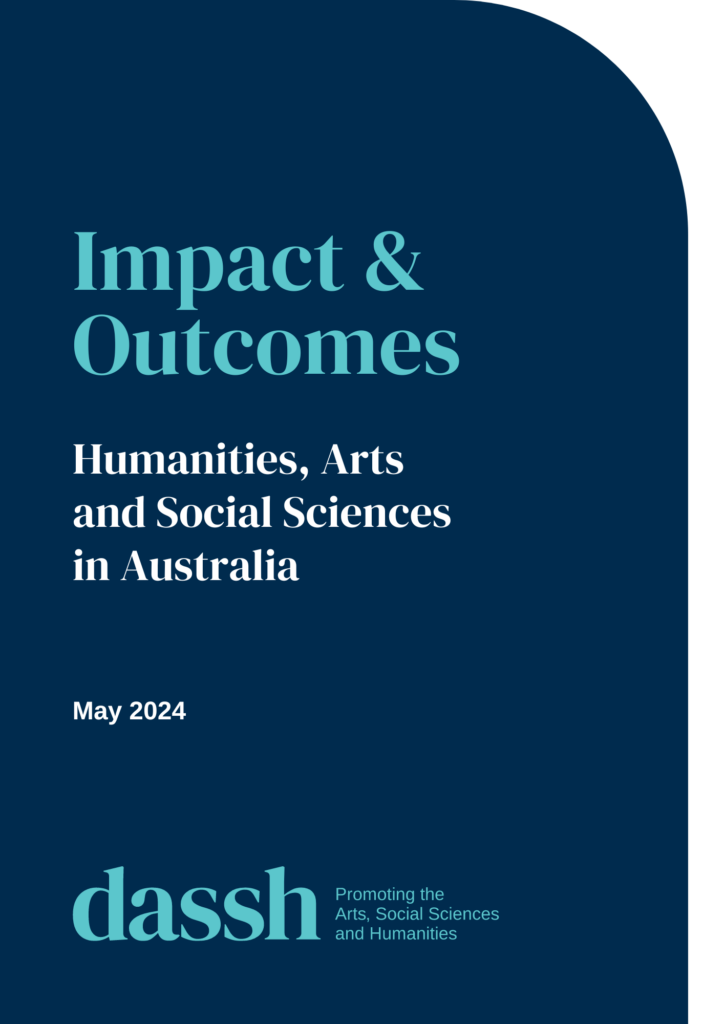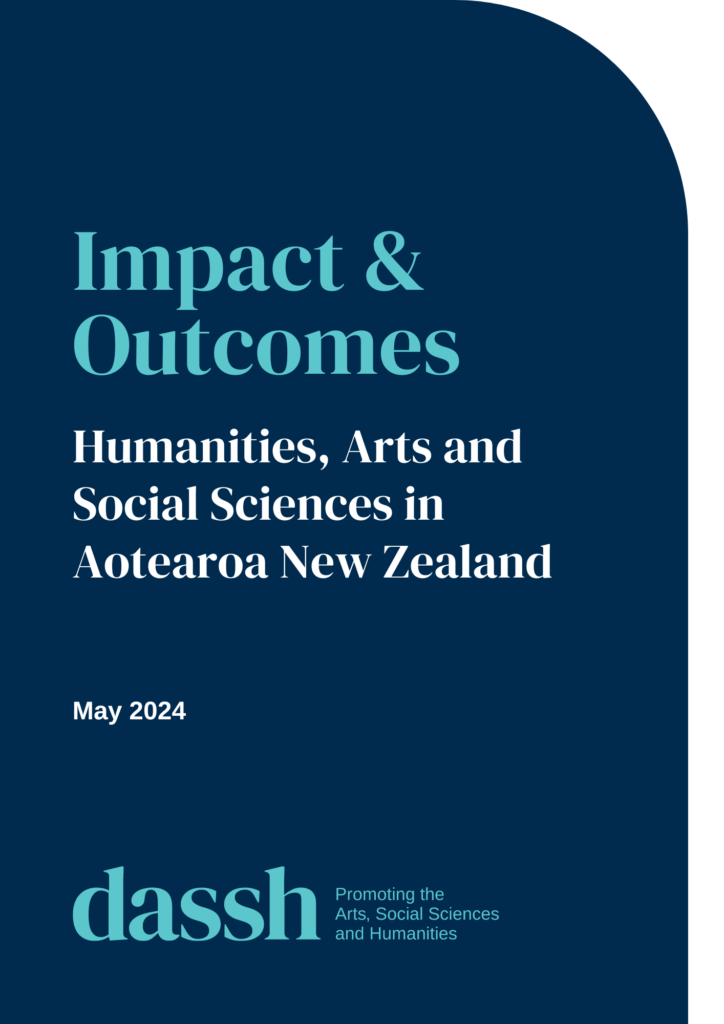DASSH continues to produce data and analysis on the Arts, Social Sciences and Humanities in universities around Australia and New Zealand. In the past two decades DASSH has explored the nature and role of the Bachelor of Arts, interrogated the role graduates play in the Australian workforce, investigated the scope for work integrated learning for students and scoped enrolment and staffing trends in the sector among other important topics.
DASSH is engaged in an ongoing scope of work focussed on sectoral trends over the past decade.

Latest Research
We’ve compiled evidence of the wide-ranging economic, social and cultural impacts of the humanities, arts and social sciences in Australia and Aotearoa New Zealand. You can read the full reports and access our fact sheets here.
Impact & Outcomes
These reports highlight the wide-ranging economic, social and cultural impacts of the humanities, arts and social sciences in Australia and Aotearoa New Zealand.
The humanities, arts and social sciences deliver direct economic benefit to the Australian and New Zealand economies and bring with them huge social benefits. Graduates of arts degrees also go into a long list of exciting and diverse careers, all of which have an important role to play in a healthy, happy, and well-informed democracy.
Arts, Social Sciences and Humanities and the future workforce
This report reviews recent literature and analysis to make the case for a clearer articulation of the value of our disciplines in the context of Australia’s future workforce.
As work is transformed by accelerating automation and digitisation, skills such as problem solving, communication and design thinking are among those most in demand by employers. This is particularly true in technical fields where collaboration is recognised as key to translating technical and scientific developments into societal advances. As industry and society adapt to new ways of working, business reconnects with people and traditional career trajectories give way to portfolio careers and the gig economy, enterprising and entrepreneurial skills will be increasingly necessary to individuals and organisations.
Mapping enrolments and completions, 2013-2018
In 2006, the Australian Learning and Teaching Council funded the Bachelor of Arts Benchmarking Project, which later became known as the BA Scoping Project. The project became a valuable resource for academics in the Humanities, Arts and Social Sciences as a snapshot of the state of degree in 2008. An update of the project was commissioned in 2011 enabling the development of an overview of trends and changes in BA programs between 2008 and 2012. However, the BA is only one of the degrees offered by DASSH members, and among some universities, there has been a move away from the traditional BA degree. This project builds on and complement the BA Scoping Project.
This report details data and analysis about enrolment and completion trends for Australian Arts Social Sciences and Humanities degree between 2013 and 2018. This project includes data relating to all under- and postgraduate degrees (including double degrees) regardless of their formal titles. DASSH plans to expand this project in the coming years as more data becomes available and study the impacts of Commonwealth policy changes since 2011 on enrolment and staffing figures.
Benchmarking the Bachelor of Arts
A national scoping study investigating the nature and roles of the Bachelor of Arts (BA) in Australia was conducted in 2007. Reports highlighting key findings and a series of datasets designed to provide benchmarking data were made available in 2008.
In 2011, DASSH commissioned a follow-up project aimed at updating the datasets. The review of the datasets enabled the development of an overview of trends and changes in programs between 2008 and 2012.
The project team drew on archival data or primary records (such as official documents, brochures, and institutional course planners); secondary sources (such as websites, publicity documentation and media stories); and running records (such as ongoing statistical data collections from national surveys and Commonwealth data sets). Bachelor of Arts degrees, and similar programs, were examined across 39 providers. Data were collated into a standard framework template, which enabled complex and varied data to be collated into a manageable format to facilitate cross-institutional comparison and further analysis. The framework, once completed for each institution, was verified by the person identified as responsible for program oversight, usually the program or course coordinator at each institution.
Bachelor of Arts Scoping Project
This project gathered evidence to be used by decision makers across the sector to optimize future curriculum development in the light of the potential value of the Bachelor of Arts. It provides options and guidance to the sector for other crucial projects and for further work in implementation and response to future demands. An outcome of the BA Scoping Project was a clearer definition for Arts programs.
Work experience opportunities in the Australian Bachelor of Arts
There is an increasing trend in Australian universities towards offering internship-based courses in undergraduate degree programs. In a professions-based program such as engineering or dentistry, the shape and nature of these courses may be obvious. It is less so in generalist programs such as the Bachelor of Arts and the Bachelor of Science. This project built on previous projects that had identified challenges in incorporating workplace learning opportunities into BA programs.


